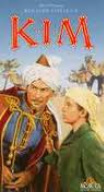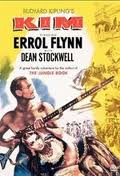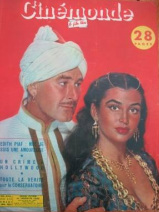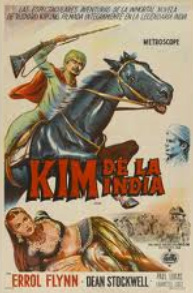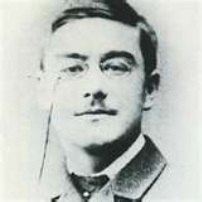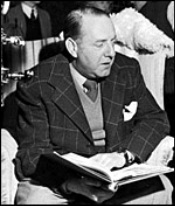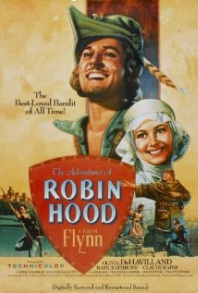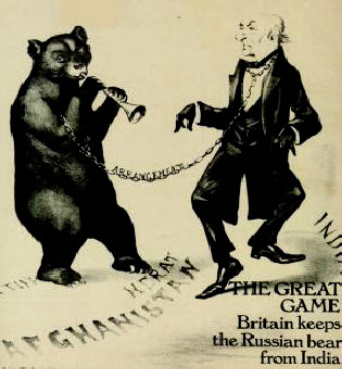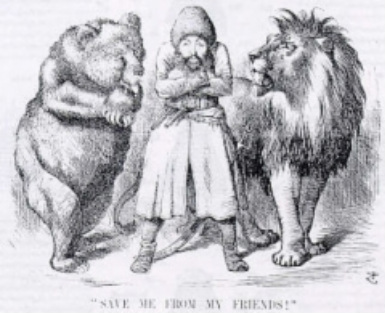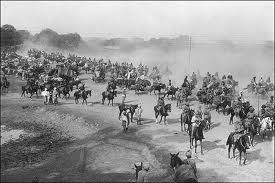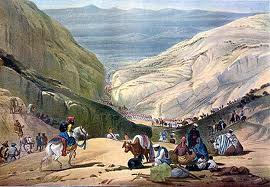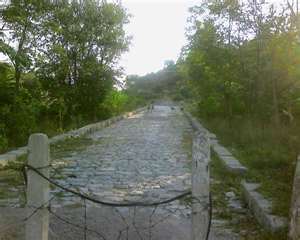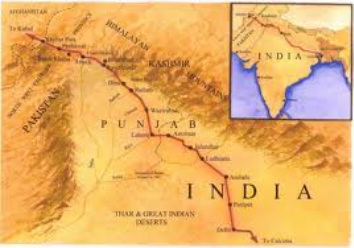Kim - the Movie and the 'Great Game'
Scenes from the 1950 Movie Kim
|
|
|
The 'Great Game' and its key settings
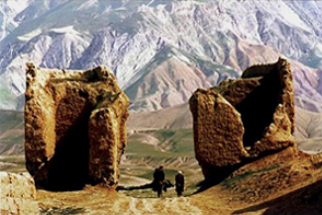
Both the book and the movie Kim refer to the 'Great Game'. The term applies to the nineteenth century rivalry between the Russian and British empires for control of access to the great trade and military routes that bisected Afghanistan and the North-West Frontier. They were of crucial strategic importance for control of the 'the jewel in the crown': British India. One meaning of the term was popular with British journalists and authors of the nineteenth century - it was shorthand for the alleged rivalry between the Russian and British intelligence services seeking to manipulate Afghani and tribal rulers. The wider strategic meaning of the 'Great Game' referred to British determination to exploit the political instability of Islamist Asia and expand southwards into central Asia and beyond.
The crucial pivot of this expansion was regarded as Afghanistan and the mountain passes.
The term probably derives from Arthur Conolly, a British intelligence officer serving in India. In 1842 Conolly, who in 1842 was captured by the Uzbeks, thrown into a well filled with snakes and whose body was then beheaded weeks later. Rudyard Kipling popularised the phrase in his1901 novel Kim,about an Anglo-Indian bpy trying to stop a Russian spy ring.
More than a century later, these same nineteenth century strategic concerns about Russian control of the area can be seen in American efforts to counter Soviet Russian domination of Afghanistan. A fatal consequence of this revival of the Great Game can be seen in the U.S. decision to assist the Taliban in their attempts to defeat the Soviet invaders of Afghanistan. The origins of this American policy are examined with acerbic wit in the movie Charlie Wilson's War.
The crucial pivot of this expansion was regarded as Afghanistan and the mountain passes.
The term probably derives from Arthur Conolly, a British intelligence officer serving in India. In 1842 Conolly, who in 1842 was captured by the Uzbeks, thrown into a well filled with snakes and whose body was then beheaded weeks later. Rudyard Kipling popularised the phrase in his1901 novel Kim,about an Anglo-Indian bpy trying to stop a Russian spy ring.
More than a century later, these same nineteenth century strategic concerns about Russian control of the area can be seen in American efforts to counter Soviet Russian domination of Afghanistan. A fatal consequence of this revival of the Great Game can be seen in the U.S. decision to assist the Taliban in their attempts to defeat the Soviet invaders of Afghanistan. The origins of this American policy are examined with acerbic wit in the movie Charlie Wilson's War.
Khyber Pass
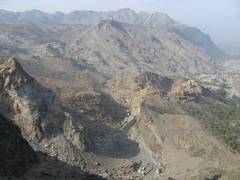
The Khyber Pass
The Khyber Pass itself is only about 33-35 miles long, a times just a narrow defile, providing opportunities for ambush and concealment, restricting the scope for modern mechanised warfare. It connects Afghanistan's capital, Kabul with Pakistan's capital, Peshawar. For over two millennia the Pass has been a crucial passage enabling both trade and invasion from central Asia.The armies of Alexander the Great, Timur, Akbar and Barbar have all left their mark on the pass itself or the Frontier region as a whole.During the 19th Century the Pass was a key element in the Afghan wars involving the British, who were anxious to control an invasion route that threatened their control of India.
The Grand Trunk Road
|
The Grand Trunk Road is a major feature in some of Rudyard Kipling's poems about British India and his famous novel Kim, published 1901, about the the adventures of a young British orphan boy who leads the life of a native and becomes involved in a spying intrigue with the so-called 'Great Game' rivalry between Britain and Russia as a background. One of Kim's first adventures takes place as he travels the Road with an aged Tibetan Lama.Kipling's novel was filmed in 1950, directed by Victor Saville, starring the young Dean Stockwell as Kim. Some scenes were shot in India.
In Kim Kipling described the Road as ' such a river of life as nowhere else exists in the world'. Several important settings are placed along the Road Some of his most evocative verse describes ordinary soldiers' lives and experiences as they march or camp down the Road. Here is Kipling's vigorous poem about a regimental relief march along the Road: 'We're marchin' on relief over Injia's sunny plains, A little front o'Christmas-time an' just be'ind the Rains; Ho! get away you bullock-man, you've 'eard the bugle blowed, There's a regiment a-comin down the Grand Trunk Road (Route Marchin') 'And there fled on the wings of the gathering dusk A savour of camels and carpets and musk A murmur of voices, a reek of smoke, To tell us the trade of the Khyber woke. (The Ballad of the King's Jest) |
